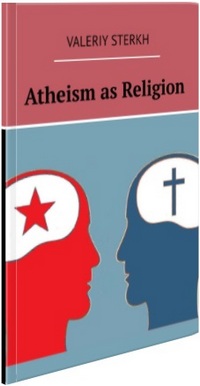Christian reading
Issue N58

Atheism as Religion
Chapter 8: Morality and love
Atheism does not provide any moral compass. It has no sacred book that clearly defines good and bad, virtue and sin. A lack of moral guidance may take an atheist anywhere from peacefulness to aggression, from pacifism to militant Atheism with all its atrocities, from humanism to cynicism, from vegetarianism to cannibalism, from chastity to sexual immorality, from monogamy to partner swapping, from having many children to abortophilia, from traditional family values to the horrors of juvenile justice, from epicureanism to euthanasia.
Atheists believe that morality has nothing to do with God or any higher spiritual authority. But what is “atheistic morality”? Can a person for whom nothing is sacred be considered moral? Apparently, an atheist will call moral whatever they believe to be moral. In the absence of clear moral guidance, each person is free to define their own moral standards.
And what could be worse than moral anarchy? Only an atheistic totalitarian state that imposes its own moral code on its citizens to humor the whims of the leader. History is replete with examples of monstrous social experiments and their dire consequences – churches have been blown up and looted, relics desecrated, priests and laypeople brutally murdered, Christians persecuted... This is our history. But we see a lot of it repeating today. Atheism is at the root of many of these crimes. It is the religion of people who have rejected God.
God is love. Those who do not believe in God are not capable of true love. For an atheist, love means constantly vacillating between emotions and reason, between idealism and purely materialistic view of how chemicals affect the brain and sexual instincts. Such inner conflicts inevitably lead the atheist either to a split in consciousness or to moral degradation.
In the first case, they will have a dissociative identity disorder, constantly switching between two different personalities. One personality believes in love and beauty and is capable of love and noble acts. The other one acknowledges only the material world as the ultimate reality, viewing everything as a random play molecules, atoms, and particles. The former has at least some hint of connection with God, while the latter has completely severed itself from the Divine.
In the second case, the person is completely taken over by the “other personality”, turning into a cynic and rejecting not only love but also the “shackles of morality”. For “if God does not exist, then everything is permitted”.
In the case of a dissociative identity disorder, there is still enough humanness left, and the person can return to a healthy state of mind. In the second case, their moral and spiritual condition is almost irreversible.
(to be continued)